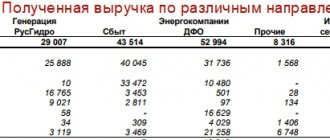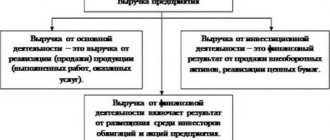Currency control during the implementation of an export project: minimizing risks
Transcript of M. K. Antipov’s speech at the annual conference “Logistics of the Chemical Industry”, organized by the Logistic-community event agency, February 27, 2021.
“Good afternoon, dear colleagues. I will now talk about three things. The first is what the state wants from exporters; second, how these requirements are changing and will change; third - how to live while these requirements are as they are.
The requirements of export control are that the state wants absolute punctuality from the exporter in matters of receiving foreign exchange earnings. It wants the exporter to receive the entire amount in full within the exact time period specified in the contract, and strictly into an account in a Russian bank. Exporters often think that this is their personal business, which does not concern anyone, and plus/minus a day in receiving revenue is not terrible. The state treats this differently. It wants the revenue to arrive within the exact period specified in the contract. The second part is that you need to explain what this money is. The bank may not accept the money if it does not understand where the money came from or why it came. The bank may block the transfer, and then the first problem arises again: the money that the exporter is waiting for as his proceeds may not reach his account, and he will face failure to fulfill the main obligation (receipt of foreign exchange earnings). Administrative and criminal liability is established for these violations.
Administrative liability ranges from 75% to 100% of lost foreign exchange earnings. For example, an exporter is faced with an unscrupulous counterparty, and his transaction is worth 1 million rubles. He did not receive this million rubles, that is, he will suffer commercially. The state will fine him another million for fulfilling his commercial obligation and receiving his money from his counterparty. If the transaction amount is more than 9 million rubles, then there is already a risk of criminal liability, which can reach up to 5 years in prison. This is quite a problematic situation for exporters.
The positive part of this story is that the government understands this. There is already a general consensus that this needs to be simplified. The norms are rudimentary, they date back to a time of strict regulation. Now regulation has become easier, and the need for repatriation is no longer so acute. Therefore, a number of measures were included in the national project for international export cooperation that were aimed at simplifying all this. I'll tell you what the consensus was. The problem was that the agreements were good, but implementation was very slow.
I’ll go through all three plots at once. First, receiving proceeds to your account in an authorized bank. The state still insists that the proceeds go to an account in the Russian Federation. At one time, when we were conducting a dialogue, we asked that the requirement for repatriation be abolished altogether. It happens that the bank can receive the proceeds and send them back abroad the next day. Nobody prohibits it; it can be stored abroad. It would seem, why do you need to first receive it and then take it back? To this, the Bank said that it needed to understand the origin of the proceeds. Here the question is not so much about maintaining the currency balance of the Russian Federation, but rather the question of combating money laundering. At the moment, a bank can only assess the legality of the movement of these funds when it comes here from a foreign jurisdiction. While they do not have the opportunity to conduct a constant dialogue with their foreign counterparties and the same central banks of other countries, they say that the situation does not yet allow them to refuse repatriation. The only thing they agreed to was to amend the law on currency regulation and exchange control. For ruble transactions, foreign currency earnings may not be returned if they are under a contract for the export of non-resource and non-energy goods. Ruble contracts are a small share of Russian exports, but this is the first step towards it.
The Bank of Russia promises that as information exchange relations with foreign banks are established, they will gradually abandon the repatriation requirement. For now only in rubles. There is a gradual movement for other types of exports and raw materials. The law spells out the stages of how the requirement for repatriation will change. The only thing that will not be touched is the forest. Timber export is the most painful topic for the state.
The second part is administrative responsibility. We agreed that we would simplify the requirements of currency control not through the abolition of repatriation, but through the shift of severe responsibility. The first thing we agreed on was that if foreign currency earnings are received in violation of the deadline not exceeding 30 days, then liability does not arise. All these are prepared amendments that are in the Government of the Russian Federation. This is a consensus among regulators. This is where we are going. First, companies will not be fined for violating the 30-day deadline. This often happens because somewhere the counterparty is careless about the deadlines and delays it by a day or two; Somewhere this is due to the fact that while money is flowing through the banking system, time is also lost. There are such small violations, but now the law is such that if the payment is late by an hour, the composition is formal, the customs authority must open a case. This amendment removes this problem, allowing minor errors to not be held accountable.
The second story is the same thirty-day moratorium on fines for receiving foreign currency earnings into an account in a foreign bank. Now there is a strict requirement: only from the counterparty, only to an account in your bank in Russia. This hinders companies that purchase abroad. Sometimes, when a purchase takes place in a foreign jurisdiction, there is a requirement: the account must be in that country. If the purchase takes place in Germany, then both applicants and tenderers must have an account in Germany. It is currently prohibited to receive foreign currency earnings into a German account.
The third point is now responsibility from 75% to 100%, it cannot be lower than 75%. Now it will be reduced to a range of 5–30% for foreign exchange contracts, and to 3–10% for ruble contracts.
Foreign exchange reporting is another obligation that we discussed earlier. There are also deadlines for reporting on what the money is, how it came and for what goods. Here the deadlines are also shifted. The company will have a period of 90 days when it can submit these reports. The lower threshold is set at 200 thousand rubles. In equivalent, it can be a ruble or foreign exchange contract, but if it is up to 200 thousand rubles, then the failure to return foreign currency earnings does not entail liability.
The saddest story is criminal liability. Criminal liability under Art. 193 of the Criminal Code of the Russian Federation occurs rarely. Statistics say that about 100–110 cases are initiated per year, but only 5–15 cases reach the court. Most cases fall apart at the preliminary stage. However, for companies that find themselves in this situation (I repeat that 9 million rubles is a small contract), the costs associated with participating in this process of providing explanations about how they lived, worked and why they got into this situation are unpleasant. We proposed to completely abolish the article providing for criminal liability for non-receipt of foreign currency earnings and make this a qualifying feature under a different structure: fraud, illegal entrepreneurship, income stabilization. When it is part of a larger scheme, then it may be an aggravating circumstance, but not an independent element. However, we were unable to reach an agreement with the Bank of Russia. Law enforcement agencies also strongly objected to this. As a result, at a meeting with the President, a decision was made on how the amendments would actually be introduced and adopted in the first reading.
First Amendment to the Administrative Code. Those articles that provide for surebets from 75 to 100% will have the opportunity to issue warnings. This is the mildest reaction to violations. This is not the case now, but it will be soon. A new lineup appears. In the case when the volume of unreturned revenue is not 9 million, but already more than 100 million rubles, then administrative liability arises, provided that there are no signs of a criminal offense. And check the responsive amendments to the Criminal Code. It will be possible to bring criminal liability not for the first violation, but only if the company was held administratively liable, that is, fined for an administrative violation when the amount of lost revenue was above 100 million. All small things, which may also be not sufficient to bring criminal liability. Those who have committed minor violations cannot be further prosecuted until they commit a major violation.
The thresholds for prosecution are also changing significantly. Large size – from 9 million to 100 million rubles; especially large size – from 45 million rubles to 150 million rubles. These are half-hearted solutions, because the sword of Damocles still remains raised. In my opinion, it does not solve the problems that law enforcement officers see and the problems that exporters see. However, this is progress. Let's hope that these amendments reach their logical conclusion. Let’s also hope that the previous amendments that came into effect as part of the national project will also be adopted. They are ready, there is already a consensus. It is important here that this movement does not stop. The movement has been in its final stage for 1.5 years, that is, quite a long time, despite the critical decisions made.
What are your recommendations? We held a webinar on this topic specifically with customs authorities, where we were given recommendations, which I will now list. In many ways, these are standard recommendations for companies that are doing business and looking out for their own interests. The specificity that is determined by the requirements of currency control is that you must not only carry out these actions, but also formally record them so that you can later confirm them. If suddenly you did not receive the proceeds, and they begin to hold you accountable, then you must show that you did everything possible to prevent this situation. This is the only way to legally escape this system. The first thing you need to do is check the partner (who he is, whether his company is valid). It is advisable to leave some traces here too. Namely, send letters to the Chamber of Commerce and Industry, to the trade mission of the Russian Federation. It is necessary to record the fact that you cared about this situation and worked on it, and did not just look on the Internet. At the stage of concluding a transaction, non-receipt of foreign currency earnings is a big risk for you, which must be minimized. It is recommended to include sanctions for your partner in the contract if, through his fault, you find yourself in such a situation, since you will pay a fine and incur administrative costs associated with participation in an administrative/criminal process. These things must be compensated by the counterparty, and he must understand this. Different countries have different levels of stringency of currency regulation. Counterparties may simply not understand that in Russia regulation is structured differently. Negligence may be due to this misunderstanding. This misunderstanding must be eliminated at the stage of concluding a transaction and recorded with legal instruments.
It is recommended to stagger the timing of sending and receiving funds. Sometimes money goes through the banking system. In this case, it is important to note that the deadline for fulfilling obligations, which is specified in the contract, is not the deadline for sending money, but the deadline for receiving money. These deadlines need to be set with a margin, and ideally they need to be spaced out. Relatively speaking, the deadline for receiving money should be two weeks behind the deadline for sending money, so that all misunderstandings that arise can be understood, identified and eliminated. At the moment, a month is the very formal period followed by responsibility.
It is important to choose the right arbitration. Many companies, when concluding a contract, download a template from the Internet with Stockholm Arbitration, without knowing what it is. Then, when law enforcement agencies ask about what was done to receive the proceeds, what measures were taken, whether they went to Stockholm arbitration, the counterparty says that he does not know what it is. For law enforcement agencies, this means that the company did not seriously intend to demand its funds back. This is seen as a sham transaction, and the government will not treat this company leniently in such a situation. A normal company, of course, will protect its rights by choosing the right arbitration, which is an indicator of your good faith for the customs authority and the court.
When a deal is already being implemented, it is important to remind counterparties in advance by email that the deadline is approaching. Then you can show these letters to law enforcement officers, thereby proving that you took measures and were concerned in advance. If you see that something has changed and the counterparty will not be able to transfer money on time, then you can change the contract, change the contract execution period. However, this can only be done in advance. If the deadline has expired and you have not received the money, then it is useless to tell the counterparty about the change in the contract. You will still be punished, since the period has already expired and there is a formal violation. Another thing is if the deadline has not expired, and you have agreed with the counterparty on other deadlines, then everything is in order. The state is happy with this arrangement, but it is important to do this in advance. If the payment deadline is still missed, it is important to actively pursue claims. Many companies avoided responsibility only because the court and law enforcement agencies saw that the company was not satisfied that the money was lost somewhere. This often happens with companies that are involved in withdrawing money. They seemed to have lost the money, although initially they had no intention of getting it back. And they sit quietly. This is a sign of an unscrupulous company. If a company is actively pursuing claims, this indicates that it wants to get its money back. A normal, conscientious company that just found itself in a difficult situation. This may look like a ritual, but this is the reality for now. If you want to avoid liability for a violation that may be caused by the actions of an unscrupulous counterparty, over whom, unfortunately, you have little influence, then you need to carefully and scrupulously record all these things, thus minimizing your risks.”
Buying currency
Foreign currency is purchased to pay for contracts with a foreign partner, travel expenses for employees traveling abroad, or to repay loans received in foreign currency.
EXAMPLE LLC "Importer" submitted an application to the bank "Commercial" for the purchase of foreign currency in the amount of 50,000 US dollars and transferred to it 1,450,000 rubles.
Commercial Bank purchased currency on the exchange at the rate of 29 rubles/USD (notional exchange rate). The dollar exchange rate established by the Bank of Russia is 30 rubles/USD. The difference between the Bank of Russia rate and the rate at which Commercial Bank purchased the currency on the exchange will be 50,000 rubles. (50,000 USD × (30 rubles/USD – 29 rubles/USD)). In the accounting records of the “Importer”, the entries will be as follows: DEBIT 57 CREDIT 51
– 1,450,000 rubles.
– rubles are listed for the purchase of currency. Next, the currency purchased by the bank must be credited to the current foreign exchange account at the Bank of Russia rate (30 rubles/USD): DEBIT 52 CREDIT 57
– 1,500,000 rubles.
(50,000 USD × 30 rubles/USD) – the purchased currency is credited to the current foreign exchange account. Since Commercial Bank purchased the currency at the rate of 29 rubles/USD, the “Importer” needs to reflect the difference between this rate and the rate of the Bank of Russia: DEBIT 57 CREDIT 91-1
– 50,000 rub. (50,000 USD × (30 rubles/USD – 29 rubles/USD)) – a positive result from the purchase of currency is reflected. In accounting, the positive result from the purchase of currency is reflected as part of other income. In tax accounting, the “Importer” must reflect “simplified” income, a positive exchange rate difference between the rate at which the currency was purchased and the official rate of the Bank of Russia on the date of purchase on the basis of paragraph 1 of Article 346.15 of the Tax Code.







